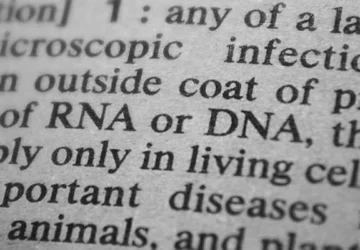
Travel Through Pages: Literature for Explorers
What defines “literature for explorers”?
The easy answer is a story about a journey. A book that moves, that chronicles a voyage from a safe harbor to a wild, unknown land. We think of travelogues, memoirs, or survival stories.
But this definition is incomplete. It’s too literal.
A true story for explorers is not just about a person moving through a place. It is about a person confronting a place. The greatest works of this genre are those where the “Place” itself the desert, the jungle, the mountain, the city stops being a simple background. It sheds its passivity. It becomes a character.
A living, breathing, and often terrifyingly powerful force.
There is no greater or more profound example of this in all of human literature than Herman Melville’s “Moby-Dick.”
We are taught that this is a book about a man hunting a whale. This is true, in the same way that “Hamlet” is a play about a prince who sees a ghost. It is a massive understatement. “Moby-Dick” is not a book about a man hunting a whale. It is a book about a man who, driven mad by his own grief, decides to murder the ocean.
The whale, Moby Dick himself, is just the “white mask.” He is the physical, tangible avatar for the book’s true, vast, and terrifying main character: the Sea.
Melville does not treat the ocean as a setting. He treats it as the primary antagonist. It is a god. It is a void. It is a mapless, indifferent universe that one man, Captain Ahab, decides to challenge to a personal duel. This is the story of that impossible fight.

Giving a “Face” to the Infinite
From the very first pages, Melville is not interested in the ocean as a simple body of water. He is interested in it as a metaphysical force.
Before we even board the ship, our narrator, Ishmael, dedicates entire chapters to the “watery part of the world.” He watches the crowds in Manhattan, who are “all landsmen; of week days pent up in lath and plaster… all bound for water.”
He argues that the sea is a magnet for the human soul. It is a mirror for our own inner depths.
“Why did the old Persians hold the sea holy? Why did the Greeks give it a separate deity, and make him the own brother of Jove? Surely all this is not without meaning. And still deeper the meaning of that story of Narcissus, who because he could not grasp the tormenting, mild image he saw in the fountain, plunged into it and was drowned.”
This is Melville’s opening argument. The sea is not just a place we explore; it is a place we are. It is the “image” of the ungraspable “phantom of life.”
Once we are aboard the Pequod, Melville begins to build the ocean’s “character.” It is not a simple, single-note entity. It is complex. It is contradictory. It is two-faced.
The ocean can be beautiful. Ishmael describes the “delightful” days, the “serene and mild” air, the “gentle” waves. He sees a world teeming with life, a “nursery” of whales, a place of profound peace. This is the ocean’s “calm” face.
But this beauty is a lie. Or, rather, it is a “pasteboard mask.”
Ishmael, our philosophical explorer, understands this. He looks over the side of the boat into the “transparent” water and sees “the innermost beings of the deep.” But this calm is what he fears most. He knows that beneath this “treacherous” beauty lies a “horrible” and “pitiless” truth. The sharks, the “ungraspable” depths, the cold, primal, and “inhuman” power.
This is the ocean’s personality. It is not “evil.” An evil entity would be comforting. An evil entity would care enough to hate you. The ocean’s true horror, as Melville presents it, is its profound, absolute indifference.
It is a god, but not a human god. It is an Old Testament, pre-human god. A force of nature that creates and destroys without malice and without mercy. It just is.
And this indifference is the one thing that Captain Ahab cannot, and will not, accept.

The White Whale as the Ocean’s “Mask”
Ahab needs a villain. He is a man of “impious” pride, a character of tragic, Shakespearean rage. He lost his leg to a whale. But in his mind, it was not an accident. It was not a “dumb brute” acting on instinct.
To Ahab, it was a personal attack.
He cannot stand the “voiceless” indifference of the universe that allowed this to happen. A meaningless accident is, to his mind, more terrifying than a malicious enemy.
The whale is the perfect “mask” for the ocean. He is a part of the ocean. He is its “agent.” He is as old, as vast, and as powerful as the sea itself. He is not just any whale; he is an “ubiquitous” and “immortal” creature. He is a myth.
Melville dedicates an entire, brilliant chapter to “The Whiteness of the Whale.” This is the key to the whole book. Why is the whale white?
Ahab sees in that whiteness not purity, but a void. It is the “colorless, all-color of atheism.” It is the white of a polar bear, of a shark’s belly, of a leper. It is the color of the “white squall” of the sea.
It is, in short, the color of the ocean’s blank, horrifying indifference.
When Ahab gathers his crew on the deck for his famous “quarter-deck” speech, he is not just initiating a hunt. He is declaring war on a god.
“All visible objects, man, are but as pasteboard masks… If man will strike, strike through the mask! How can the prisoner reach outside except by thrusting through the wall? To me, the white whale is that wall… I see in him outrageous strength, with an inscrutable malice sinewing it.”
This is the entire thesis. Ahab needs that malice to be there. He is the “prisoner” of the human condition, and the “wall” is the indifferent universe (the Ocean). He believes that if he can just “strike through” the physical manifestation of that universe (the Whale), he can defeat the very thing that makes him small and mortal.
He is, of course, insane. But it is a magnificent, epic insanity.

The Explorer vs. The Conqueror
The novel is a “travelogue” for explorers, but it presents us with two competing philosophies of exploration. They are embodied by Ishmael and Ahab.
Ishmael is the true explorer. He is on the voyage to see. To understand. He is a philosopher. He wants to know the “ungraspable phantom of life.” He is not there to conquer the ocean; he is there to dissolve into it.
He is the man at the “mast-head,” the lookout post, where he gets so lost in metaphysical contemplation of the sea that he almost falls into it. He wants to merge with its “full, steady, tide-like flow.” He is not afraid of the ocean’s indifference; he finds a strange peace in it. He is a man who respects the Place.
Ahab is the conqueror. He is the anti-explorer. He is not on the voyage to see; he is on the voyage to destroy. He does not want to understand the ocean; he wants to punish it. He wants to impose his human will on its vast, non-human face.
He is a man of fire. He famously “baptizes” his new harpoon not in the name of God, but in the name of the Devil. He is the ultimate “finite” rebel, screaming at the “infinite.”
This conflict makes the Pequod a “ship of fools,” a floating metaphor for all of humanity. It is crewed by men from every corner of the earth, all led by a mad captain on an impossible quest, all floating on a “Place” that is bound to, and will, destroy them.
The third option is Starbuck, the first mate. He is the professional. He is not an explorer or a conqueror. The ocean, to him, is a workplace. It is a “factory floor” where he “manufactures” whale oil. He respects the ocean’s rules the way a carpenter respects a saw. He is sane. And this sanity is precisely why he is powerless against Ahab’s mythic, insane “will.”

The Place as Victor
This is not a story for explorers that ends in triumph. It does not end with a new land discovered or a treasure found.
It ends with the Place, the Ocean, winning.
The final, three-day chase is a masterpiece. It is the final confrontation between the Conqueror and the Place. Ahab finally has his “wall” in front of him.
And the wall is impassive.
Moby Dick, the “mask” of the ocean, does not fight with rage. He fights with the calm, effortless, and overwhelming power of an earthquake. He destroys the boats. He sinks the Pequod.
Ahab’s final act is one of pure defiance. Tied to the whale by his own harpoon line, he is “dragged” down into the depths. He is, literally, consumed by the Place he tried to murder.
The ship, the crew, the captain all of it is erased.
And what is left? The Ocean.
“Then all collapsed, and the great shroud of the sea rolled on as it rolled five thousand years ago.”
The sea simply “rolls on.” It is indifferent. It has won, not by trying to win, but simply by being what it is. It is the ultimate victor, the ultimate character.
Only one man survives. Ishmael.
And how does he survive? He is not saved by a weapon. He is not saved by his will. He is saved by surrendering to the Place. He floats, passively, on Queequeg’s coffin—a symbol of both life and death. He becomes a “fragment” of the sea itself.
The ocean, having destroyed the “conqueror,” gently “adopts” the “explorer.” The sea, in its indifference, finally releases him.
The Ultimate Exploration
“Moby-Dick” is the ultimate book for “explorers” precisely because it is not about tourism. It is not about discovering a new continent.
It is about the exploration of our own insignificance in the face of a universe that does not know our name.
Melville’s genius was in taking that abstract, terrifying concept the “void,” the “wall,” “God,” “indifference” and giving it a name, a body, and a face. He made the Pacific Ocean a character. He made it the antagonist of a story about the doomed, but magnificent, nature of human defiance.
We read it to travel. But the journey is not across the water. It is into the very heart of the human condition, pitting our small, fiery will against the cold, infinite, and unconquerable sea.
This is what makes it a masterpiece. It doesn’t just show you a voyage; it forces you to choose who you are on that voyage.
Recommended for you

What Is Lateral Reading and How It Helps You Spot Fake News
We have a problem. We are all failing a test we don’t even know we’re taking. The test is the internet. The subject is “truth.” And the people failing the hardest are, paradoxically, the “smartest” ones. For our entire lives, we have been trained in a specific, “academic” way of reading. We were taught to […]

Does Reading Make You Smarter? The Science Behind the Habit
Does reading make you smarter? The simple, reflexive answer is “yes.” It’s a piece of received wisdom we’ve all internalized. We are told to “read more” in the same way we are told to “eat our vegetables.” We know it’s good for us, but the specific reasons remain abstract. What does “smarter” even mean? If […]

Top Modern Novels Worth Reading
What makes a novel “modern”? The word itself is a trap. Does “modern” mean new? Does it mean it was written in our lifetime? Or does it refer to a specific, explosive period in art (capital ‘M’ Modernism) that shattered every rule it could find? We believe it’s all three. The “modern novel” isn’t just […]

How to Read Academic Literature Effectively
Reading an academic journal article is not like reading a novel. It is not like reading a blog post. It is a completely different activity. A novel invites you in. A blog post gives you its point quickly. An academic paper, by contrast, is a fortress. It is dense, written in a specialized code, and […]

Molecular Biology and the Books That Defined It
What is life? For millennia, this question was the domain of priests, philosophers, and poets. It was a question of “spirit,” of a “vital spark,” of a “ghost in the machine.” Then, in the middle of the 20th century, a new group of thinkers took over. They were physicists, chemists, and biologists, and they approached […]

How Fiction Can Support Learning and Imagination
For centuries, a persistent myth has haunted our perception of reading. It is the myth of the “serious” versus the “frivolous.” In this binary, non-fiction is the “serious” stuff. It is the realm of facts, history, science, and learning. Fiction, on the other hand, is cast as the “frivolous” sibling. It is entertainment. It is […]

Preparing for Exams Using Books and Study Guides
It is the most dreaded and familiar ritual in academic life. It is 1 a.m. The exam is in eight hours. You are surrounded by a wall of open textbooks, and your eyes are scanning a highlighted page for the tenth time. You recognize the words. They feel familiar, like an old song. But when […]

How to Become More Productive: Step-by-Step Guide
In one afternoon, a small team can draft a long-form article, auto-generate matching social graphics, and cut a 60‑second explainer video—without touching traditional timelines or hiring a studio. The shift isn’t hype: AI tools now turn plain text into publish-ready visuals, videos, and SEO-optimized pages, compressing days of manual work into hours. If your goal […]